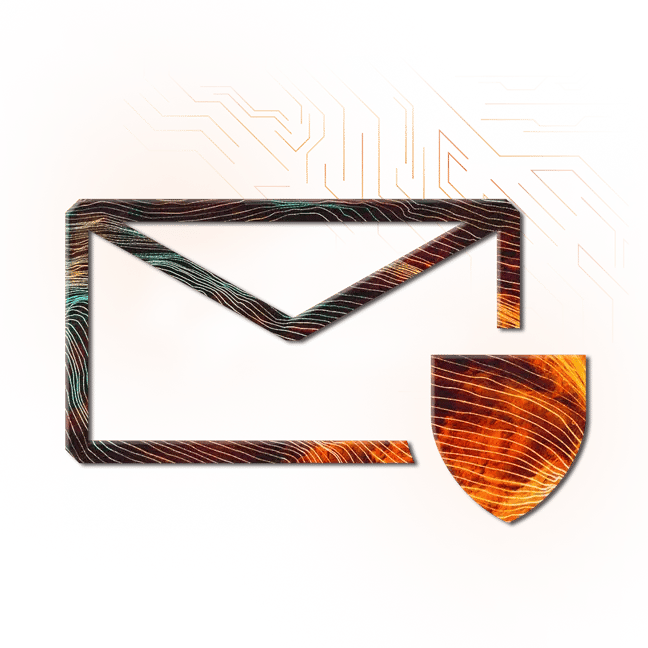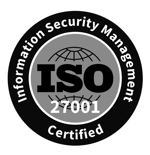- Home
- Services
- Cyber Security
- Email Security Solutions
Email Security Solutions
Advanced email security for known, unknown and emerging threats. Protect the No.1 Threat Vector with targeted threat prevention.

Email-Based Threats Remain the Number One Attack Vector
Over 90% of cyber security attacks on an organisation start from a malicious email. Emails are an effective initial attack vector due to the sheer volume of emails an employee receives, their increasing sophistication and the relative lack of awareness of most end users.
Cyber criminals take advantage of this through phishing attacks, which have become more common and effective thanks to the growth of cloud-based email and remote working outside the protection of the office network.
Harmful emails come in many different forms and are growing ever more sophisticated in their design and delivery. Threats include ransomware attacks, credential theft and remote access (to steal data), impersonation of a high-level executive within a company and installation of a trojan, enabling specialised malware to be downloaded.

Your Current Email Security Solutions May Not Protect Against the Latest Threats
It is vital for organisations to regularly evaluate their email security effectiveness to keep pace with the dynamic threat landscape.
Many organisations rely on the built-in Microsoft 365 security settings or other configuration options provided by their cloud email provider.
However, these email security solutions may lack the layers of algorithmic analysis, threat intelligence, executive monitoring and real-time link scanning needed to defend against advanced email threats.
Zero-Day Malware
Signature-based detection of malware is unable to identify and block zero-day attacks before they infect the corporate network.
Social Engineering
Threat actors use psychological manipulation to trick employees into revealing confidential information or granting access. These attacks often bypass traditional email security measures, as they rely on trust rather than malicious code.
Business Email Compromise
BEC attacks impersonate trusted parties—like executives or vendors—to fraudulently request money transfers or sensitive data. Email security that doesn’t validate sender authenticity is likely to miss these threats.
Employee Negligence
Email security solutions lacking data loss prevention (DLP) won’t stop employees sharing sensitive data via email to unauthorised parties.
Key Drivers for Cyberone Email Security
We incorporate multiple technologies to ensure enterprise-class threat detection rates with very high accuracy, surpassing what single-engine solutions can provide.
We defend against malicious code in email and attachments and reveal evasive zero-day threats through real-time, deep content inspection, scanning URLs on every click and preventing access to bad websites.
We prevent data infiltration and exfiltration with advanced email protection capabilities, including optical character recognition (OCR), encrypted file detection, and data loss prevention (DLP).
We offer both on-premises and cloud-based email solutions, supporting multiple email service providers within a single domain, allowing for seamless migration between providers.
Control access to sensitive email attachments with granular controls for various device types, easily administered from our cloud portal.
The threat of attackers impersonating CEOs or other company executives is increasing exponentially. Our multi-layered protection incorporates unique features to tackle this type of spear phishing directly.
Gain rich context about potential threats to help identify infected devices and risky user behaviour. Give users automatic feedback when they perform inappropriate actions.
Our qualified engineers provide round-the-clock support, so your email security is always monitored without the need for in-house teams.
What Does Cyberone Email Security Solutions Include?
Our range of options includes:
10,000+ Algorithms
10,000+ algorithms with analysis of more than 134 variables that are extracted from every email message.
100% Cloud Based
100% cloud–based and easy–to–deploy email security solutions with a simple mail exchanger (MX) record change.
Multi-Faceted Approach
Multiple technology incorporation to ensure enterprise–class threat–detection rates with very high accuracy.
Comprehensive Analysis
Full analysis of Inbound email with optional outbound email analysis using unlimited keyword lists.
Advanced Mail Routing
Advanced mail routing engine providing complete control over mail flow, supporting multiple email providers.
Thorough Inspection
Inspection of all aspects of email, including size, content, attachments, headers, sender, and recipients, with appropriate action taken.
Detailed Message Tracking
Detailed message tracking to see quickly why an email was delivered or rejected, including the full conversation with the remote email server.
Multiple Antivirus Engines
Multiple traditional signature and behaviour–based antivirus (AV) engines, including static sandboxing of file attachments.
Time-Of-Click Protection
Time–of–click protection from malicious URLs in emails with the option to scan links at time of delivery.
Email Encryption
Email encryption, compliant archiving and continuity, complementing email security with a range of add-on products.
Cloud Based Email Routing
Full cloud-based email routing with fully featured company and personal quarantines for message management.
Flexible Policies
Deep categorisation and flexible policies to detail precisely how different types of messages are processed and tagged.
We Can Also Enable These Add-on Email Security Services
Email Backup
Storing copies of messages for up to seven years with full text search.
Email Archiving
Providing a fully compliant archive with unlimited storage for an unlimited time.
Email Continuity
Providing user with an emergency inbox accessed via the browser if the primary email server fails.
Secure Email
Providing a simple solution to sending encrypted emails to specific recipients.
Cloud Access Security Broker (CASB)
To discover, analyse, secure and manage user interaction with cloud apps.
Proven. Certified. Trusted.
CyberOne holds globally respected accreditations, including CREST for SOC, Pen Testing and Cyber Incident Response; NCSC Assured Service Provider and Cyber Incident Response (Level 2); and ISO 27001. CyberOne is also a Microsoft Solutions Partner across Security, Modern Work, Infrastructure, and Data & AI, with advanced specialisations in Threat Protection and Cloud Security. These credentials reflect our world-class capability to protect, optimise, and empower your organisation.

Get In Touch
Learn more about how CyberOne Internet Security can protect your business.
Complete the form and one of the CyberOne team will contact you.
Frequently Asked Questions
What is Email Security?
Email security refers to the measures and techniques implemented to protect email communication and prevent unauthorised access, data breaches, and other forms of cyber threats. It involves various practices such as encryption, authentication, spam filtering, and virus scanning to ensure the confidentiality, integrity, and availability of email messages and attachments.
Why Is Email Security Important?
Email security is important because emails are a primary mode of communication for businesses and individuals. They often contain sensitive and confidential information, such as personal data, financial details, and business strategies. Without proper security measures, emails can be intercepted, hacked, or manipulated, leading to unauthorised access, data breaches, identity theft, and financial loss.
What Are the Common Email Security Threats?
Common email security threats include:
- Phishing Attacks
- Spear Phishing
- Business Email Compromise (BEC)
- Malware & Ransomware
- Email Spoofing
- Man-In-The-Middle Attacks
- Credential Harvesting
- Link Manipulation
- Zero-Day Exploits
- Data Leakage
What Are the Different Types of Email Security?
There are several types of email security measures that can be implemented to protect email communication. These include:
- Encryption
- Authentication
- Spam filters
- Anti-malware and antivirus software
- Digital signatures
- Two-factor authentication
- Email archiving
What Is the Best Email Security Solution?
The best email security solution would depend on individual needs and preferences. However, some commonly recommended security measures for email include:
- Using strong and unique passwords
- Enabling two-factor authentication
- Regularly updating email software and applications
- Avoiding clicking on suspicious links or attachments, and
- Using encrypted email services.
What Are the Common Security Protocols for Email?
Common security protocols for email include:
- Secure Sockets Layer (SSL) encryption
- Transport Layer Security (TLS) encryption
- Sender Policy Framework (SPF)
- DomainKeys Identified Mail (DKIM)
- Domain-based Message Authentication, Reporting, and Conformance (DMARC)

